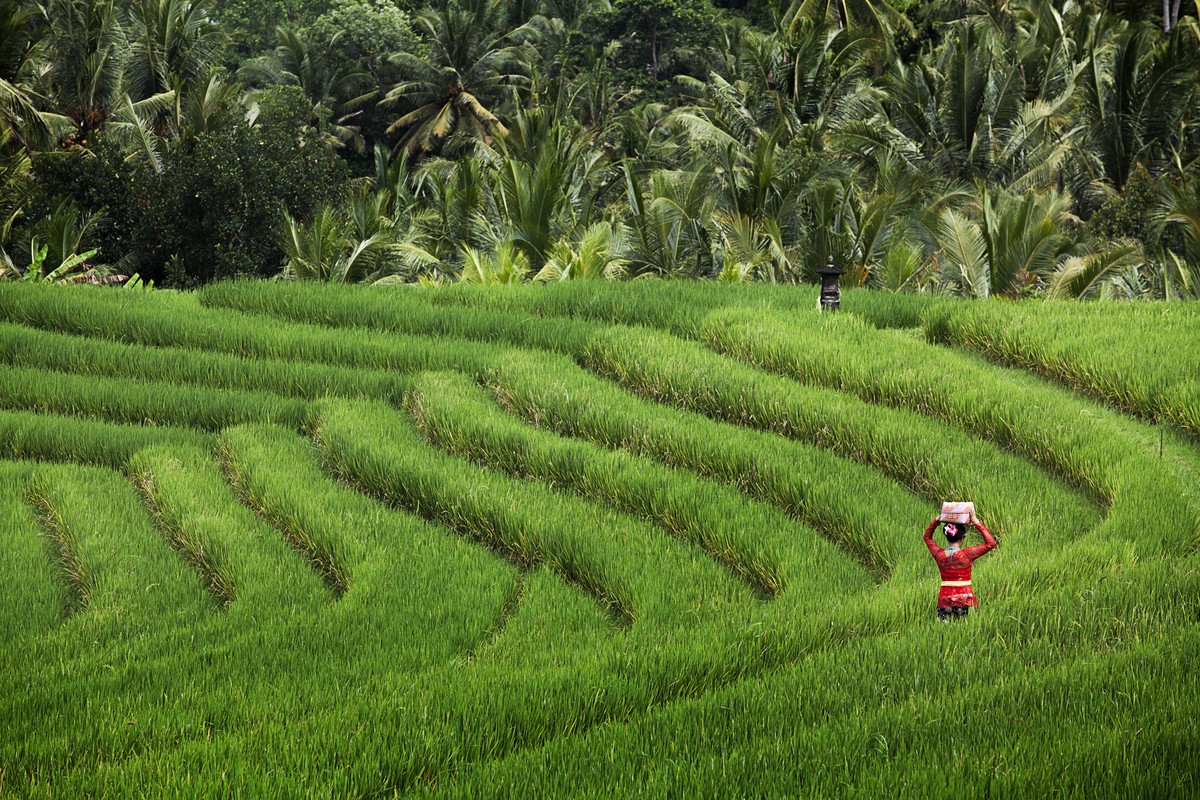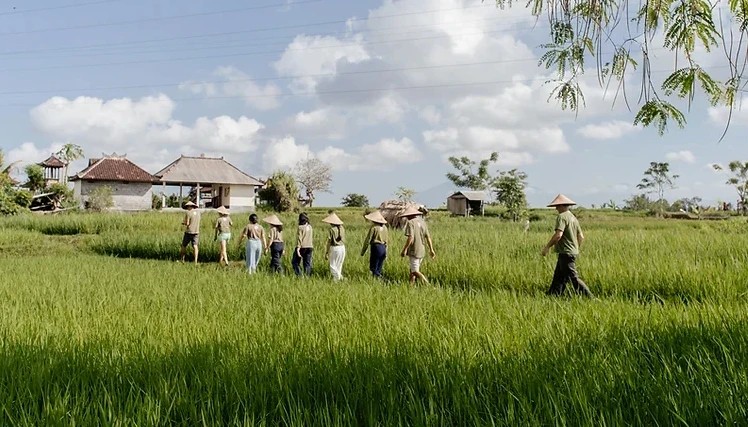The Balinese rice terraces of Jatiluwih, listed by UNESCO, have always attracted tourists. Now, there's more than just a photo opportunity against the backdrop of green fields. Local entrepreneurs have created Jatiluwih Eco Farm – a unique place where you can not only see the lives of Balinese farmers but also experience it yourself.

Just 4 km from the main Jatiluwih terraces, a space covering 40 hectares has opened. It offers activities around the clock. For example, you can plant rice or enjoy a mud bath (the farm's creators claim this is a favorite pastime for European yogis). They also conduct coffee workshops on the premises, teaching how to make this beverage using traditional Balinese recipes. Furthermore, you can collect honey from the local beehive.
All these activities coexist with the infrastructure, which is designed to meet the demands of even the most discerning guests. For instance, you will soon be able to stay overnight in a wooden villa with a designer interior, air conditioning, and views of the rice fields or glamping. For those who particularly value their time, they have even built a helipad.
“At night, the space continues to astonish guests,” says John K. Purna, one of the farm's founders. “It's magical at night – thousands of fireflies illuminate the fields like garlands.”
The farm hosts a restaurant where the dishes are primarily made from local ingredients. Ninety percent of the ingredients are grown within a 5 km radius.
Thanks to this project, 120 new jobs have already been created in this Bali region. The farm's employees are residents of nearby villages, now more motivated to stay at home rather than seeking work elsewhere. Moreover, 10% of the farm's income will be directed towards community needs.
Those who have already visited the farm say that a day filled with activities costs an average of 300-500 thousand rupiahs per person. However, it's best to check the prices in advance.
The project has already attracted the attention of Singaporean businessmen. There are plans to expand the infrastructure, provided it does not harm the environment. For instance, they want to create a glamping site among avocado trees, featuring 10 luxury tents with panoramic windows. The estimated price is from $200 per night. There is also the idea of launching jeep tours in classic Land Cruisers and Volkswagens and holding yoga retreats here. For those interested in history and technology, they will open the Subak Interactive Museum – an interactive exhibition on the ancient irrigation system with AR effects.
“We don't want to be just another attraction. Our goal is to show how tourism can benefit nature and people,” says John.
The best time to visit this place is from May to July. During this period, it's firefly season in Bali, so a natural light show is guaranteed.
Sources: Teras Bali, Berita Dewata


You can add one right now!